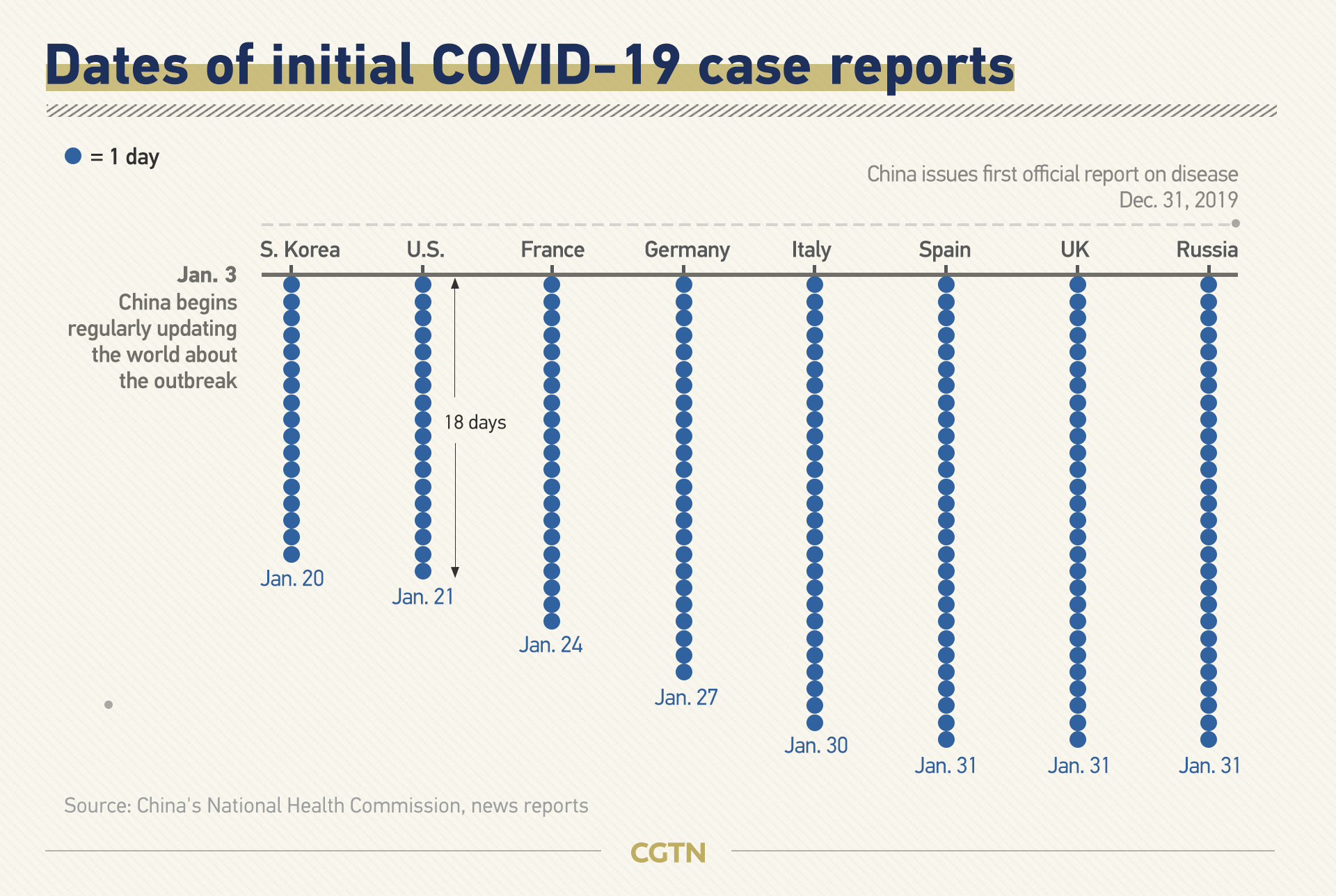Recently, some politicians in certain countries have been hyping up claims that China should be held accountable for the pandemic, accusing China of covering up information about the COVID-19 outbreak.
They have often criticized so-called lack of transparency from China. However, facts speak otherwise.
On December 27 last year, Zhang Jixian, a respiratory doctor in Wuhan, which was hardest hit by the coronavirus outbreak, was the first to alert authorities of a new contagious disease after treating patients with flu-like symptoms. Meanwhile, the city's health officials started an investigation into the viral outbreak.
Within three days, the Wuhan Municipal Health Commission sent out an urgent notification about an outbreak of pneumonia of unknown causes in the city, and started releasing briefings on the disease since December 31. National experts were also sent to investigate the epidemic on site.
At that time, there were still dozens of days away from the first case reports in the United States and many European countries, which were later hit hard by the virus.

It was an unknown virus to mankind that takes time to know more.
But China moved fast to investigate the outbreak. It quickly identified the source and transmission route of the disease, and share the information it could get with the world as early as possible.
Since January 3, China has been regularly informing the World Health Organization (WHO) and relevant countries, including the United States, on the latest development of the situation.
On January 12, China shared with the WHO information on the genome sequence of the novel coronavirus, which has laid a solid foundation for global efforts of scientific research and vaccine development.
On January 23, China put Wuhan into lockdown to contain the virus. By that time, the megacity with 11 million residents had reported fewer than 500 infections, while cases outside the country was merely seven.
One day later in his first tweet on coronavirus, U.S. President Donald Trump praised China for "working very hard to contain the coronavirus," further stressing that "The United States greatly appreciates their efforts and transparency."

It is fair to say that China has taken the most comprehensive, strictest measures to battle the epidemic at the earliest possible manner. The government has always stressed that epidemic information must be reported in time and released in an open, transparent and truthful way.
China's measures worked, and life is getting back on track in the country.
While the pandemic is still wrecking havoc elsewhere, smearing and scapegoating China does no good whatsoever in the fight against the pandemic.
As a Xinhua commentary pointed out, "The high-volume attacks against China, including absurd and ill-disposed calls for inquiry, lawsuits and compensation to hold China liable for coronavirus damage, all stem from the desperate effort to divert domestic attention and shield their own incompetence and mistakes from scrutiny."
(With input from Xinhua)
(Graphics by Qu Bo, Feng Yuan)